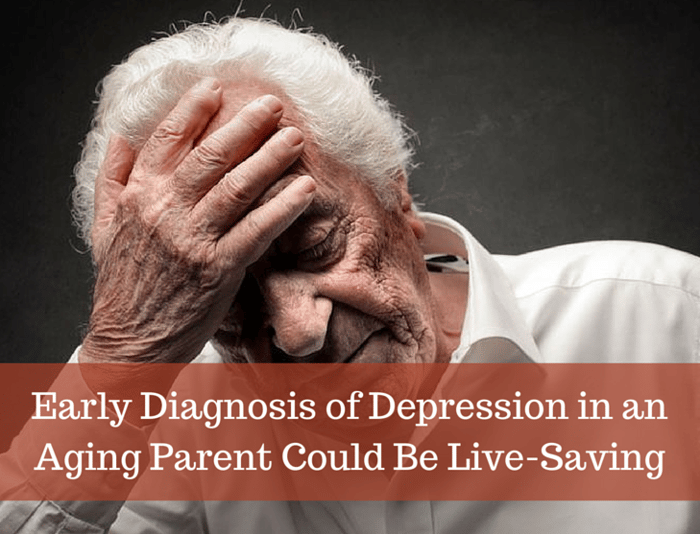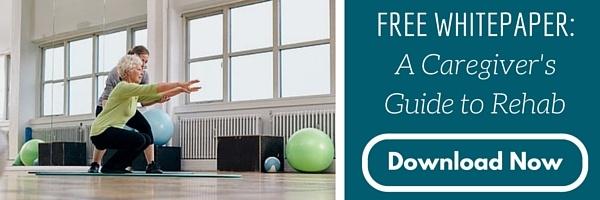
Depression is one of the hardest things to witness in our aging parents, but unfortunately, it’s more common than you might realize among seniors. Mental Health America reports that depression is often “under-recognized and under-treated” in older adults. Seniors themselves are often reticent to admit to depression for several reasons:
- They fear becoming a burden to their families.
- Their generation grew up in a time in which mental illness was stigmatized.
- Talking about feelings and asking for help just isn’t part of their personality.
- They don’t believe depression is a real illness and blame themselves for being weak.
A study from the American Journal of Geriatric Psychiatry found that 27 percent of the seniors assessed met the criteria for a diagnosis of major depression, and even more had symptoms that significantly impacted their lives.
Doctors don’t see their patients every day and often don’t notice changed behavior in their elderly patients, so it falls to caregivers and family to be on the alert for signs. Early diagnosis and treatment is key to a quick recovery. Depression is not a normal part of aging. It is a medical problem that can often be successfully treated.
How Depression Affects the Health of an Older Adult
Depression is more common in people who have other illnesses, including cancer, diabetes, heart disease, and Parkinson’s disease. And, according to AARP, 4 in 5 older adults have suffer from at least one chronic condition.
Depression can make these conditions worse, and vice versa.
If left untreated, depression can impair a senior’s ability to function and can cause a decline in their overall physical health. Older adults with depression often need more help with self-care and daily living activities than those without depression, and they recover more slowly from physical injuries and illnesses.
When older adults experience restricted blood flow in the brain, a condition called ischemia, they may experience depression for the first time in their lives. An older adult with no previous history of depression develops “vascular depression.”
Depression is a risk factor for suicide, and older Americans have the highest suicide rate of any age group, according to WebMD. Senior men over 80 have the highest rate of all.
Signs of Depression in Older Adults
Although we usually associate depression with sadness, this might not be the case for your aging parents. Instead of sadness, they may complain of extreme fatigue, lack of motivation, or increased physical aches and pains.
Other symptoms to watch for include:
- Difficulty concentrating, inability to make a decision
- Loss of interest in once pleasurable activities
- Weight gain from overeating, or weight loss from disinterest in food
- Feelings of hopelessness, despair, futility
- Expressions of extreme guilt, shame, self-loathing, or worthlessness
- Sleep disturbances: insomnia or excessive sleeping
- Headaches, joint aches, digestive problems
- Social withdrawal and isolation from friends and family
- Increased use of alcohol and prescription drugs
- Irritability, anxiousness, restlessness
How to Help an Older Adult Who Shows Signs of Depression
First: offer unconditional support. Listen with patience and compassion and offer hope that recovery is possible. The human brain’s neuroplasticity makes it moldable and capable of change well into old age as it grows new cells and forms new pathways.
You might suggest a confidential online mental health screening to get the discussion going. If you sense the situation is more serious, encourage your loved one to schedule a doctor’s appointment and accompany her for support. Treatments vary for each person, and might include medications and/or talk therapy. If the cost factor is a concern to your aging parent, remind her that Medicare covers many aspects of mental health services.
Other lifestyle changes that can be extremely helpful include:
- Caring for a pet. According to a study in the Journal of the American Geriatrics Society, a pet is a wonderful antidote to depression and can give an elderly person a renewed interest in life.
- Exercising. Physical activity has powerful mood-boosting effects that are as helpful as antidepressants for some seniors.
- Volunteering. Helping others takes the focus off of self, increases socialization, and builds a network of supportive peers with common interests, all of which decrease depression in the elderly.
- Learning a new skill. Encourage your loved one to choose something he’s always wanted to try. A new language? Bridge or chess? Bread baking?
Remember: it’s not your responsibility to fix your aging parents, but you can let them know how much you care about them and offer to support them in whatever treatment choice they make.












